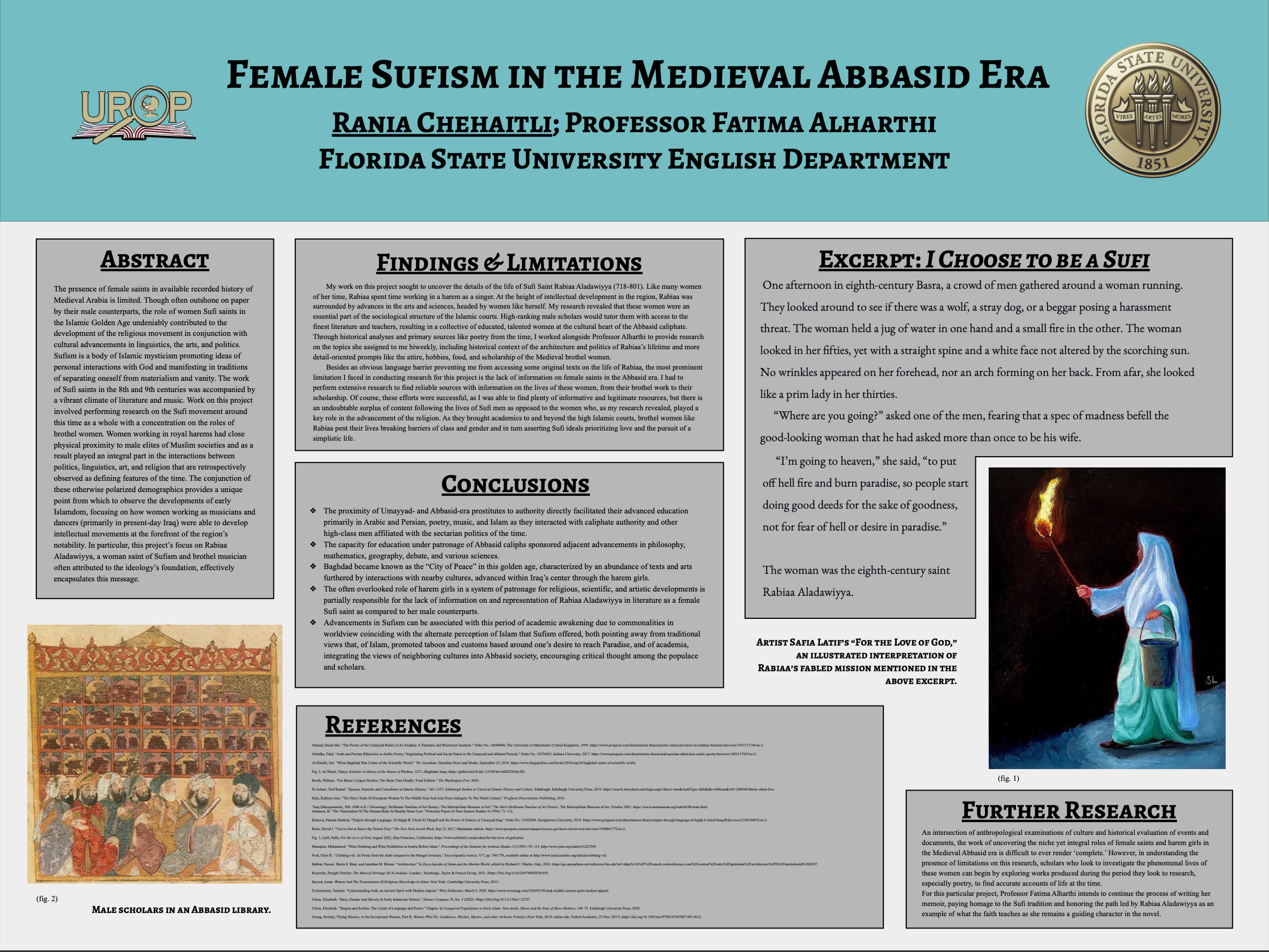Research Symposium
23rd annual Undergraduate Research Symposium, April 6, 2023
Rania Chehaitli Poster Session 1: 11:00 am - 12:00 pm/ Poster #304

BIO
Rania is a second-year undergraduate student in the Honors program pursuing a dual degree in Political Science and International Affairs, with a minor in Law and Philosophy and a concentration in Religion. As a first-generation Lebanese-American, she strives to conduct research and pursue academics that allow her to interject her cultural identity and experiences into her work, highlighted by her UROP project on female figures in Sufism. She currently serves as a Student Senator for the College of Social Sciences and Public Policy as well as the Activism Chair of a Student Government party, utilizing her understanding of political affairs in both roles to effect change at the University level while allowing her voice as an Arab-American woman to take up space in policymaking and advocacy. Rania hopes to pursue a career in international law as a lawyer for the International Criminal Court, working to uphold standards of human rights across the globe.
Female Sufism in the Medieval Abbasid Era
Authors: Rania Chehaitli, Fatima AlharthiStudent Major: Political Science and International Affairs
Mentor: Fatima Alharthi
Mentor's Department: English Mentor's College: College of Arts and Sciences Co-Presenters:
Abstract
The presence of female saints in available recorded history of Medieval Arabia is limited. Though often outshone on paper by their male counterparts, the role of women Sufi saints in the Islamic Golden Age undeniably contributed to the development of the religious movement in conjunction with cultural advancements in linguistics, the arts, and politics. Sufism is a body of Islamic mysticism promoting ideas of personal interactions with God and manifesting in traditions of separating oneself from materialism and vanity. The work of Sufi saints in the 8th and 9th centuries was accompanied by a vibrant climate of literature and music. Work on this project involved performing research on the Sufi movement around this time as a whole with a concentration on the roles of brothel women. Women working in royal harems had close physical proximity to male elites of Muslim societies and as a result played an integral part in the interactions between politics, linguistics, art, and religion that are retrospectively observed as defining features of the time. The conjunction of these otherwise polarized demographics provides a unique point from which to observe the developments of early Islamdom, focusing on how women working as musicians and dancers (primarily in present-day Iraq) were able to develop intellectual movements at the forefront of the region’s notability. In particular, this project’s focus on Rabiaa Aladawiyya, a woman saint of Sufism and brothel musician often attributed to the ideology’s foundation, effectively encapsulates this message.
Keywords: Sufism, Women, Islam, Iraq, Abbasid


